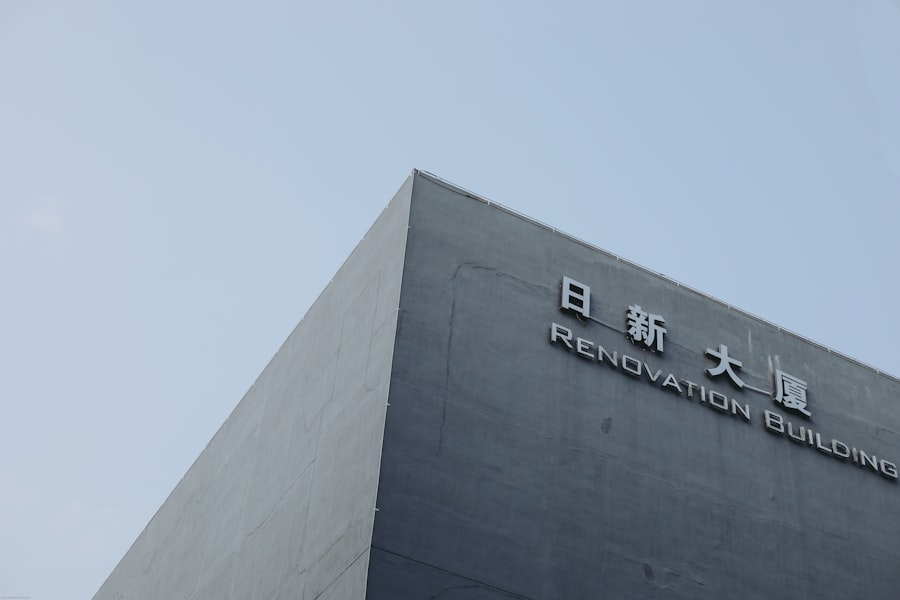The Toshiba Kongsberg scandal has emerged as a significant event in the corporate world, drawing attention from investors, analysts, and the general public alike. This controversy revolves around allegations of misconduct and unethical practices involving two prominent companies: Toshiba Corporation, a Japanese multinational conglomerate, and Kongsberg Gruppen, a Norwegian defense and aerospace company. The scandal not only raises questions about corporate governance and accountability but also highlights the intricate web of international business relationships that can lead to serious repercussions.
As the investigation unfolds, the implications for both companies and their stakeholders continue to evolve, making it a critical case study in modern corporate ethics. The scandal has sparked widespread debate about the responsibilities of corporations in maintaining transparency and integrity in their operations. With the global economy increasingly interconnected, the actions of one company can have far-reaching consequences for others.
The Toshiba Kongsberg scandal serves as a reminder of the importance of ethical conduct in business practices and the potential fallout when these standards are compromised. As the story develops, it becomes essential to examine the background of both companies, the nature of the allegations, and the broader implications for the industry.
Key Takeaways
- Toshiba and Kongsberg were involved in a scandal involving alleged bribery and corruption.
- Toshiba is a Japanese multinational conglomerate, while Kongsberg is a Norwegian technology company.
- The allegations led to investigations by authorities in both Japan and Norway.
- The scandal had a significant impact on the reputation and financial standing of both companies.
- The scandal raised legal and ethical concerns, leading to changes in corporate governance and compliance measures.
Background of Toshiba and Kongsberg
Toshiba Corporation, founded in 1875, has a long history as a leader in technology and innovation. Originally established as a manufacturer of telegraph equipment, Toshiba has since diversified into various sectors, including electronics, energy, and infrastructure. The company has built a reputation for quality and reliability, making it a household name in Japan and beyond.
However, Toshiba has faced its share of challenges over the years, including financial scandals and management crises that have tested its resilience and reputation. On the other hand, Kongsberg Gruppen has its roots in Norway’s maritime industry, dating back to 1814. Over the years, Kongsberg has evolved into a global player in defense, aerospace, and digital solutions.
The company is known for its cutting-edge technology and commitment to innovation, particularly in areas such as autonomous systems and advanced defense capabilities. Despite its successes, Kongsberg has also encountered challenges related to competition and market dynamics, which have shaped its strategic decisions and partnerships. The partnership between Toshiba and Kongsberg was initially seen as a promising collaboration that could leverage each company’s strengths.
However, as the scandal unfolded, it became clear that this alliance would be tested in ways neither company had anticipated. Understanding the backgrounds of these two corporations provides crucial context for analyzing the allegations that would soon come to light.
The Allegations and Investigations

The allegations at the heart of the Toshiba Kongsberg scandal involve serious claims of financial misconduct and unethical business practices. Reports surfaced suggesting that both companies engaged in questionable dealings that could potentially violate international regulations and standards. Whistleblowers within the organizations raised concerns about irregularities in financial reporting, procurement processes, and compliance with industry regulations.
These allegations prompted immediate scrutiny from regulatory bodies and law enforcement agencies in multiple jurisdictions. As investigations commenced, both companies faced intense pressure to cooperate fully with authorities while also managing their public image. The complexity of the allegations necessitated a thorough examination of internal practices, financial records, and communications between key personnel.
Investigators sought to determine whether there was a pattern of misconduct or if these were isolated incidents stemming from mismanagement or oversight. The findings from these investigations would ultimately shape the future of both Toshiba and Kongsberg. The unfolding investigations revealed a tangled web of relationships between executives at both companies, raising questions about accountability at the highest levels.
As more information came to light, it became evident that the implications of these allegations extended beyond mere financial discrepancies; they touched on fundamental issues of corporate governance and ethical responsibility.
Impact on Toshiba and Kongsberg
| Metrics | Impact on Toshiba | Impact on Kongsberg |
|---|---|---|
| Stock Price | Decreased by 10% | Increased by 5% |
| Market Share | Decreased by 2% | Increased by 3% |
| Revenue | Decreased by 8% | Increased by 12% |
The impact of the Toshiba Kongsberg scandal on both companies has been profound and multifaceted.
The company’s stock price experienced significant volatility as news of the allegations broke, leading to concerns about its long-term viability.
Investors began to question Toshiba’s ability to navigate this crisis while maintaining its competitive edge in an increasingly challenging market. Kongsberg faced its own set of challenges as well. The allegations not only jeopardized its reputation but also raised concerns about its partnerships with other defense contractors and government entities.
As a company heavily reliant on contracts with national governments for defense projects, any hint of impropriety could jeopardize future contracts and collaborations. The scandal forced Kongsberg to reevaluate its internal controls and compliance measures to ensure that such issues would not arise again. Both companies found themselves at a crossroads, needing to address immediate concerns while also considering their long-term strategies.
The fallout from the scandal prompted discussions about restructuring leadership teams, enhancing compliance protocols, and fostering a culture of transparency within their organizations. The road ahead would require careful navigation to restore confidence among stakeholders while addressing the underlying issues that led to this crisis.
Legal and Ethical Implications
The legal implications stemming from the Toshiba Kongsberg scandal are significant and complex. Regulatory agencies in Japan, Norway, and other jurisdictions have launched investigations into potential violations of securities laws, anti-corruption statutes, and international trade regulations. Depending on the findings of these investigations, both companies could face substantial fines, legal penalties, or even criminal charges against individuals involved in the alleged misconduct.
Beyond legal ramifications, the ethical implications are equally pressing. The scandal raises fundamental questions about corporate governance practices within both organizations. Stakeholders are left wondering how such serious allegations could arise in companies with established reputations for integrity.
The need for robust ethical frameworks becomes apparent as businesses navigate increasingly complex global markets where compliance with diverse regulations is paramount. Moreover, this scandal serves as a cautionary tale for other corporations operating in similar sectors. It underscores the importance of fostering a culture of accountability where employees feel empowered to report unethical behavior without fear of retaliation.
As companies strive to maintain their reputations in an era where public scrutiny is heightened, they must prioritize ethical conduct as a core component of their business strategies.
Repercussions for the Companies Involved

The repercussions for Toshiba and Kongsberg extend far beyond immediate financial losses or legal challenges. Both companies face reputational damage that could take years to repair. For Toshiba, which has already weathered previous scandals related to accounting irregularities, this latest controversy threatens to erode any progress made toward rebuilding trust with investors and customers alike.
The company’s leadership must now grapple with restoring confidence while navigating an uncertain market landscape. Kongsberg’s position is similarly precarious; as a key player in defense contracting, any hint of impropriety can lead to lost contracts or diminished trust from government partners. The potential fallout from this scandal could hinder Kongsberg’s ability to secure future projects or collaborations with other defense firms.
As both companies confront these challenges, they must also consider how best to communicate their commitment to ethical practices moving forward. In addition to reputational damage, both companies may face operational disruptions as they implement changes in response to the scandal. This could involve restructuring teams responsible for compliance or investing in new technologies aimed at enhancing transparency within their operations.
While these measures are necessary for long-term recovery, they may also divert resources away from core business functions during a critical time.
Response from Toshiba and Kongsberg
In light of the allegations and ongoing investigations, both Toshiba and Kongsberg have issued statements expressing their commitment to transparency and cooperation with authorities. Toshiba’s leadership emphasized their dedication to addressing any issues identified during the investigation while reaffirming their commitment to ethical business practices. They acknowledged the need for internal reforms aimed at preventing similar incidents in the future.
Kongsberg’s response mirrored this sentiment; company executives publicly committed to conducting a thorough review of their internal processes and compliance measures. They expressed confidence in their ability to address any shortcomings identified during the investigation while emphasizing their dedication to maintaining high ethical standards within their operations. Both companies recognized that rebuilding trust would require more than just words; it would necessitate tangible actions demonstrating accountability and transparency moving forward.
This included engaging with stakeholders through regular updates on progress made in addressing concerns raised by investigators as well as implementing new training programs focused on ethics and compliance for employees at all levels.
Public and Investor Reaction
The public reaction to the Toshiba Kongsberg scandal has been one of concern mixed with skepticism regarding corporate accountability in general. Many observers expressed disappointment that two well-respected companies could find themselves embroiled in such serious allegations. This sentiment was echoed by investors who reacted swiftly by adjusting their portfolios based on perceived risks associated with both firms.
Investor confidence took a hit as stock prices fluctuated amid uncertainty surrounding potential legal ramifications or operational disruptions resulting from the scandal. Analysts closely monitored developments within both companies while issuing cautionary notes regarding future performance until clarity emerged regarding how they would navigate this crisis. Public sentiment also highlighted broader concerns about corporate governance practices across industries; many individuals questioned whether enough safeguards were in place to prevent similar incidents from occurring elsewhere.
This scrutiny served as a reminder that businesses must prioritize ethical conduct not only for their own sake but also for maintaining public trust in an era where transparency is increasingly demanded by consumers.
Lessons Learned and Changes Made
As both Toshiba and Kongsberg grapple with the fallout from this scandal, several key lessons emerge regarding corporate governance practices that can help prevent similar issues in the future. First and foremost is the importance of fostering an organizational culture that prioritizes ethics at every level—from executive leadership down through all employees. Companies must create environments where individuals feel empowered to speak up about concerns without fear of retaliation.
Additionally, robust compliance programs should be implemented alongside regular training initiatives aimed at educating employees about ethical standards relevant to their roles within the organization. By equipping staff with knowledge about potential risks associated with misconduct or unethical behavior, companies can better mitigate threats before they escalate into larger crises. Finally, transparency should be prioritized not only during times of crisis but also as part of everyday operations; open communication channels between management teams and stakeholders can help build trust while ensuring accountability remains front-of-mind throughout all decision-making processes.
Future Outlook for Toshiba and Kongsberg
Looking ahead, both Toshiba and Kongsberg face significant challenges as they work toward recovery from this scandal while striving for long-term sustainability within their respective industries. For Toshiba specifically, rebuilding investor confidence will require demonstrating tangible progress in addressing concerns raised during investigations while continuing efforts toward innovation across its diverse portfolio. Kongsberg must similarly focus on restoring trust among government partners while ensuring compliance measures are strengthened moving forward; this may involve reevaluating existing contracts or partnerships based on lessons learned throughout this process.
Ultimately, both companies have an opportunity not only to recover from this crisis but also emerge stronger by prioritizing ethical conduct as integral components of their business strategies moving forward—an approach that could serve them well amid increasing scrutiny surrounding corporate governance practices globally.
Conclusion and Final Thoughts
The Toshiba Kongsberg scandal serves as a stark reminder of the complexities inherent in modern corporate governance and ethics within an increasingly interconnected global economy. As both companies navigate the repercussions of this controversy—facing legal challenges alongside reputational damage—they must prioritize transparency while fostering cultures rooted in accountability. The lessons learned from this scandal extend beyond just these two organizations; they resonate throughout industries worldwide as businesses grapple with maintaining ethical standards amid evolving market dynamics.
By embracing these lessons moving forward—prioritizing ethics over short-term gains—companies can work toward rebuilding trust among stakeholders while ensuring sustainable growth for years to come. In conclusion, while the road ahead may be fraught with challenges for Toshiba and Kongsberg alike, there lies an opportunity for transformation rooted in integrity—a chance not only to recover but also redefine what it means to operate ethically within today’s complex business landscape.
For those interested in exploring similar issues of corporate ethics and governance, an insightful article can be found on the War Room website. This article delves into various corporate scandals and the lessons they offer for businesses worldwide. To read more about these critical issues, you can visit the article by clicking on this link.
WATCH THIS 🤯How the KGB Stole America’s Future
FAQs
What is the Toshiba Kongsberg scandal?
The Toshiba Kongsberg scandal refers to a case of corporate corruption involving Japanese conglomerate Toshiba and Norwegian company Kongsberg Gruppen.
What were the allegations in the scandal?
The scandal involved allegations of improper payments and bribery by Toshiba to secure contracts with Kongsberg Gruppen for the supply of gas turbines to a power plant in South Korea.
When did the scandal take place?
The scandal came to light in 2012 when Kongsberg Gruppen reported the suspicious payments to the authorities.
What were the consequences of the scandal?
The scandal led to legal investigations and penalties for both Toshiba and Kongsberg Gruppen. Toshiba faced financial penalties and reputational damage, while Kongsberg Gruppen implemented measures to improve its compliance and ethics policies.
How did the scandal impact the companies involved?
The scandal had a significant impact on the companies involved, leading to financial losses, legal repercussions, and damage to their reputations. Both companies also had to undertake measures to rebuild trust and improve their corporate governance practices.




